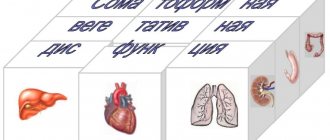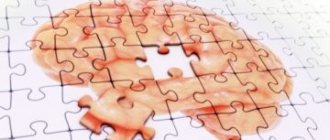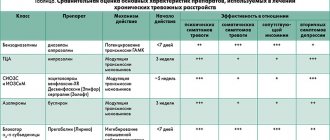Medical information is reliable Checked by Eremin Alexey Valentinovich
Acute psychotic disorder belongs to the group of transient psychoses. They are characterized by manifestations in the form of delusions, affective deviations, disorganization of thinking, hallucinations, mood disorders and other symptoms. It begins suddenly, there is no prodromal period. Recovery occurs after a few days or months. This pathological condition is most often observed in women, which distinguishes it from schizophrenia, in which the likelihood of its occurrence does not depend on gender.
Causes of acute psychotic disorder
The main reason for the development of acute psychotic disorder is severe psychotrauma, that is, a situation that is perceived by a person as severe stress:
- death of a loved one;
- divorce;
- job loss;
- car accident;
- stay in a war zone;
- physical or mental violence;
- long stay in a mentally aggressive environment;
- loss of money;
- economic difficulties.
Provoking factors contributing to the appearance of an acute psychotic reaction may be:
- hereditary predisposition;
- severe fatigue;
- lack of sleep;
- alcohol abuse;
- taking drugs.
Most often, acute psychotic disorder occurs in a certain type of person. Usually these are impressionable people who tend to take difficulties to heart, or people with a high level of fear and anxiety. In some cases, strong positive emotions can also cause the development of the disease.
Diagnostics and varieties
According to the international classification, acute psychotic disorder is diagnosed based on the following signs:
- sudden onset with hallucinations, delusions, incoherent speech;
- not meeting criteria for a depressive episode or mania;
- confusion not associated with organic disorders;
- exclusion of possible brain diseases, severe metabolic disorders;
- lack of connection between the attack and the use of a psychoactive substance;
- the presence of a connection between a stressful situation that occurred no earlier than two weeks before the development of clinical symptoms of acute psychosis.
Depending on the characteristics of the manifestation, the following types of acute psychotic disorder are distinguished:
- polymorphic with signs of schizophrenia;
- polymorphic without signs of schizophrenia;
- schizophrenia-like (with a schizophrenic reaction, acute form of schizophrenia, schizophrenomorphic);
- other types of delusional nature (including paranoid psychogenic deviations);
- other forms;
- unspecified disorder or reactive psychosis.
The symptoms of acute psychotic disorder are quite diverse, and often they can simulate other mental disorders - manic-depressive syndrome, schizoaffective disorders, depressive episode. But these diseases are preceded by a prodromal period and require long-term treatment. And in an acute process, symptoms increase quickly and are quickly relieved with the help of medications.
If you have symptoms of schizophrenia
In acute psychotic disorder with schizophrenic features, the first rank disorders typical of schizophrenia appear first:
- auditory hallucinations - voices in the head evaluate the patient’s actions and encourage them to do so;
- feeling the sound of your own thoughts in your head;
- the feeling that someone is stealing them is a symptom of “open thoughts”;
- senestopathy;
- hallucinations associated with the state of internal organs.
Delusional ideas of superpowers and the influence of external forces are clearly expressed. Emotionally, such people are anxious and suspicious, and especially active. Signs of the disease, as in the first form, replace each other quickly, they are varied and bright.
This dysfunction differs from schizophrenia in that schizophrenia is accompanied by other, more complex syndromes. For example, a change in consciousness or automatisms, which is not the case with APPD.
The cause of schizophrenia can be any stressful influence, and not necessarily acute, or even deep experiences. OPPR is caused by a powerful traumatic factor.
And of course, the duration of the process is important. The duration of manifestations in polymorphic mental disorder is no more than 1 month, while schizophrenia lasts much longer.
Acute polymorphic psychotic disorder
Acute polymorphic psychotic disorder without signs of schizophrenia most often manifests itself in the form of delusions, where the main theme is one’s own greatness, or guilt, the presence of a serious illness, or persecution. Hallucinations and delusions replace each other every day and hour.
There is also a constant change of affects, the mood can be elevated, and after a while it is replaced by severe depression. The symptoms of this disorder are very variable and changeable over time. Thinking and physical activity may slow down or speed up. Anxiety, confusion, and lack of attention are often observed. Distinctive features of polymorphic disorder are:
- constant change in the intensity of manifestation and nature of hallucinations, delusional ideas, mood;
- suddenness of symptoms;
- absence of criteria characteristic of other mental disorders.
Acute polymorphic mental disorder with symptoms of schizophrenia is considered a more severe form of the disorder, it can develop into schizophrenia, and is usually accompanied by the following symptoms:
- delirium of influence of external forces on the patient;
- confidence in your superpowers;
- conviction in reading his thoughts, imposing them from the outside;
- hallucinations with voices that evaluate his actions, talk to each other, laugh at him (Kandinsky-Clerambault syndrome);
- other psychotic manifestations and affective disorders.
These symptoms do not always indicate that a person has developed schizophrenia. If assistance is started in a timely manner, severe mental deviation can be avoided. Otherwise, the patient’s condition worsens, and a schizophrenic personality defect gradually forms. Thus, an acute disorder of this type is diagnosed based on the following signs:
- rapid development of the clinic and abrupt start;
- typical changes characteristic of schizophrenia that last less than a month;
- constantly alternating psychotic and affective disorders (anger, euphoria, anxiety).
How does polymorphic disorder manifest?
The symptoms of this dysfunction are very similar to those of schizophrenia. And often, when examining such patients, this is the diagnosis that first comes to mind. And even the classification of polymorphic disorder is associated with schizophrenic symptoms.
There are the following types:
- acute polymorphic psychotic disorder with symptoms of schizophrenia;
- acute polymorphic psychotic disorder without symptoms of schizophrenia.
But during further examination and observation of the patient, those criteria are revealed that are characteristic specifically for APPR:
- Usually the disease is preceded by a powerful stressor.
- Rapid onset - the disorder appears several weeks or even days after a stressful situation.
- Psychotic and behavioral disorders are characteristic.
- Symptoms persist for no more than 4 months (with proper therapy).
The short course of the disease is an important condition in making a diagnosis. It allows you to distinguish APPD from schizophrenia and schizoaffective disorders.
The development of dysfunction is accompanied by many manifestations that constantly and chaotically replace each other, even within a few hours. Delusions and hallucinations may be present, but they do not have a persistent, single focus. That is, the patient “fantasizes” about a variety of topics, and they change from day to day.
The mood and behavior of such people are characterized by lability, that is, instability. They may be hyperactive and overexcited, but after some time their condition is replaced by asthenia, lack of emotions and gestures. Euphoric mood swings turn into anxiety and apathy. Patients become inhibited and answer questions late.
What is not characteristic of this pathology is a change in consciousness, memory loss, and decreased intelligence. The previously acquired set of knowledge is retained.
A bright, “impressive” symptomatic picture is recorded throughout the development of the disease. And only with the start of treatment do enlightenments appear.
If the manifestations of the disease persist for more than 4 months, then you should think about the correctness of the diagnosis.
Remember the student from the previous chapter? This is how his clinic developed. After the event (diploma), he had the feeling that he was a great man. He said that he had a lot of talents and set super goals for himself. Brilliant thoughts flowed from him like a river, and he wrote several sheets of paper, listing them.
He was invited to the wedding. Arriving at the celebration, he behaved defiantly. Motor excitement was accompanied by emotional excitement. He screamed about his genius. When he was asked to leave, he went out into the street and began harassing passers-by. He asked them what his problem was.
Arriving home, he declared that their neighbors were spies. He was excited and claimed that they wanted to take away his works, since they described secret information. He said that water is a source of information, and when it flows away, it takes all the secrets with it. I didn’t sleep all night, analyzing and comparing facts.
Schizophrenia-like acute psychotic disorder
Schizophrenomorphic acute disorder is accompanied by Kandinsky-Clerambault syndrome, delusions and hallucinations. Usually the patient experiences confusion or is in a state of passion. In the first case, a person does not understand who he is, where he is and at what time. The second option is accompanied by anger, severe fear, anxiety, and some experience a state of ecstasy and euphoria.
Acute schizophrenia-like psychotic disorder develops very quickly. In some cases, a person exhibits disorganization of speech; it is fragmented and devoid of meaning. Sometimes he experiences catatonia - freezing for a long time in one position, or motor agitation.
With this deviation, typical symptoms characteristic of schizophrenia are noted. But the main difference between this disorder and other acute psychoses is that affective and psychotic symptoms do not change, but are stable. Thus, during a schizophrenia-like attack there are a number of manifestations that make it possible to determine this deviation:
- rapid onset and development of the clinical picture of the disease;
- symptoms typical for schizophrenia;
- stability of affective and psychotic disorders.
Other acute psychotic disorders
Another type of acute psychotic disorder is diagnosed when a person has delusions and hallucinations but does not have other signs of schizophrenia. Paranoid psychosis is a severe disorder and is accompanied by unsystematized delusional ideas. Most often, a person is convinced that he is being persecuted and wants to harm or kill him. Affective disorders include anxiety, fear, and severe agitation.
In the reactive form of acute psychotic disorder, a state of shock and complete loss of the patient in time and space are observed. The cause is severe psychological trauma. This type of psychosis can be of two varieties - hypokinetic and hyperkinetic type. In the first case, stupor prevails, complete numbness, accompanied by severe anxiety and fear. In the second, chaotic movements and strong excitement are observed.
Some signs of APPR
Unlike schizophrenia and schizophrenia-like psychoses, in acute polymorphic psychotic disorder, perception disturbances are episodic. As a rule, they allow you to navigate in space, time and environment. However, in some cases, perception disorders can pose a real threat to the life of the patient and the people around him.
The main signs of acute polymorphic mental disorder include:
| Rave | Expression of delusional ideas, delusional explanation and perception of surrounding reality, delusions of persecution and meaning/greatness. |
| Hallucinations | Somatic, auditory and imperative true hallucinations, as well as pseudohallucinations. |
| Emotional disorders | Confusion, apathy, depression, ecstatic state, inexplicable anxiety, fear, irritability and aggression, suicidal behavior, auto-aggression. |
| Movement disorders | Chaotic and sudden movements, motor agitation or, on the contrary, retardation, stupor and disturbances in facial expressions. |
Symptoms of acute polymorphic psychotic disorder last no more than 1 month. Their intensity and manifestations vary from case to case: disturbances of perception can begin suddenly and fade away just as quickly. However, you should not hesitate to see a doctor, since the symptoms of APPD can be signs of serious mental disorders, including chronic ones: schizophrenia, undifferentiated schizophrenia, acute delirium, cycloid psychosis, oneirophrenia, paranoid or reactive psychosis, bipolar affective disorder (BD, MDP ).
Acute psychotic disorder treatment in Moscow with drugs
The most favorable prognosis is considered to be polymorphic psychotic arousal, in which signs of schizophrenia are not observed. In some cases, it may go away on its own. But any form of acute psychosis requires hospitalization, since the symptoms of the disorders are very similar to other deviations, and long-term monitoring of the patient’s condition during treatment, at least a month, is necessary to establish the correct diagnosis. Dr. Isaev’s psychiatric clinic allows for round-the-clock monitoring and provides comfortable conditions for the patient’s stay in the hospital. If the symptoms only intensify while taking antipsychotics, then in this case schizophrenia or schizoaffective disorder is diagnosed.
Treatment of acute psychotic disorder in Moscow should be comprehensive. For this purpose, drug therapy and rehabilitation are used. A psychiatrist deals with this pathology. If the deviations are mild, assistance begins with the use of neurometabolites, usually prescribed:
- nootropics to restore brain cell function;
- B vitamins;
- amino acids.
A mild degree of dysfunction can be relieved with the help of these drugs in combination with psychotherapy. But most often it is necessary to resort to eliminating the symptoms of acute psychosis with the prescription of antipsychotics; they successfully help cope with delusional ideas and hallucinations of any type. After leaving the hospital, the person is transferred to long-acting medications. When choosing a product, the specialist is guided by the following principles:
- duration of the violation;
- features of manifestation;
- types of antipsychotics previously used;
- intolerance and resistance to drugs.
As additional therapy for acute psychotic disorders, depending on the characteristics of their manifestation, the following groups of drugs are used:
- mood stabilizers - improve mood;
- tranquilizers – calm and reduce anxiety;
- antidepressants - help treat depression and prevent suicide attempts;
- minor antipsychotics - used in elderly people and people with impaired renal and liver function, help normalize behavior.
Treatment of acute psychotic disorder in Moscow at Dr. Isaev’s clinic continues until positive dynamics appear. It is determined by the following criteria:
- absence of psychotic abnormalities;
- readiness to transfer to outpatient treatment;
- the patient’s understanding of his problem and the desire for a complete recovery;
- lack of resistance to treatment;
- the mental state assessment on the BPRS scale is no more than 35-40 points.
Without the use of competent therapy, many forms of acute psychosis develop into more severe mental disorders. In order not to undergo treatment for schizophrenia, schizoaffective and manic-depressive psychosis, you must strictly follow the recommendations of your doctor. Then the attack, as a rule, is observed as a one-time episode, and the person returns to normal life.
Diagnosis and treatment of APPR in our clinic
To make a diagnosis, a conversation with a psychiatrist and clinical observation may be sufficient. The prognosis for treatment of APPD with modern psychotropic drugs is favorable. For complete recovery, 2–4 weeks of treatment in a hospital clinic are required.
Treatment of acute polymorphic psychotic disorder is carried out by psychiatrists and psychotherapists. The acute condition is relieved either on the day of hospitalization or 2-3 days after the start of treatment. The main method of treatment is medication, the auxiliary method is psychotherapeutic.
Drug treatment of acute polymorphic psychotic disorder in St. Petersburg is carried out under the supervision of the chief physician of our clinic, Alexey Viktorovich Bocharov, a recognized expert in the field of pharmacotherapy of mental disorders.
The main stage of treatment for APPD is therapy with first-line drugs (antipsychotics, neurometabolites, antipsychotics). After the acute condition is relieved, maintenance therapy and psychotherapeutic treatment are prescribed.
Treatment of acute psychotic disorder: psychotherapy
In addition to medication methods, psychotherapy and social rehabilitation methods are used in treatment. Such assistance to the patient is structured according to the following scheme:
- determination of the patient’s personal problem;
- finding out his attitude towards his illness;
- finding the optimally effective method of therapy;
- planning work strategy;
- elimination of a person’s reaction to illness (feelings of guilt, shame, hopelessness, etc.);
- developing the right attitude towards the problem and treatment;
- training in self-identification of exacerbations;
- restoration of all possible personal resources, including skills, knowledge, interaction with other people, and the ability to solve problems.
Thanks to properly selected psychotherapy techniques, the patient will be able to:
- respond correctly to stress;
- learn productive ways to overcome it;
- develop communication skills;
- master methods of self-control;
- regulate your behavior within generally accepted limits;
- overcome difficulties without loss;
- stabilize emotional balance.
The difficulty of treating such patients is that many do not recognize their pathology, do not trust specialists, and do not want to establish contact. Often the reason for this behavior is a person’s fear of a psychiatrist. And this fact has an extremely negative impact on the course of the disease and prognosis. Therefore, at the first stage, every effort is made to achieve complete trust and interaction with the patient.
Many people do not understand why a patient needs rehabilitation if he was prescribed medications and his condition has stabilized. In fact, psychotherapy plays a huge role, since while a patient is in psychosis, his self-esteem is significantly reduced and social connections are disrupted, which affects his future life and can cause a second attack. To restore communications and normalize relationships in the family, individual work, group classes and family psychotherapy are used.
Groups bring together patients with similar problems. Some of them do not admit that they have a disease, but after classes they begin to see abnormalities in themselves. For example, one of the patients shares his delusional ideas, while others evaluate them as pathology. Such therapy also helps to establish connections with people, learn to communicate in microsociety, and respond to the behavior and statements of others. This allows you to successfully restore a person’s ability to communicate after leaving the clinic.
For complete recovery after an acute psychotic disorder, the following is also used:
- psychoeducation;
- auxiliary psychotherapy;
- communication trainings;
- art therapy;
- occupational therapy;
- cognitive behavioral therapy;
- Gestalt therapy;
- psychodynamic approach.
Hypnotic suggestion, bodywork practices, and holotropic breathing should not be used in people with psychotic disorders. These methods can significantly worsen a person’s condition and even transform psychosis into a severe form of schizophrenia.
Full recovery in a person with this disorder occurs within 3 months, in some cases it is possible to stop the condition in a few days. After this, the person must regularly visit the doctor for another year, or contact him if precursors of psychosis are detected.
Questions and answers
What should you do if a loved one has signs of a disorder, but does not want to undergo treatment?
You need to talk to him about this, try to understand and support him. The main thing is to identify how much the violation affects his work, personal relationships and life in society. If these parties suffer greatly as a result of the disease, then consultation with a psychiatrist and subsequent implementation of his recommendations are required.
Can the disorder be cured with medications alone?
Treatment must be prescribed by a doctor, and he takes into account many aspects and characteristics of each patient’s body. In some cases, for mild forms of disorders, only psychotherapy can be used. For moderate disorders, combined treatment with the use of medications. Severe types of illness require the use of drugs to normalize the condition, and psychotherapy acts as an additional method for the rehabilitation and resocialization of the patient.







